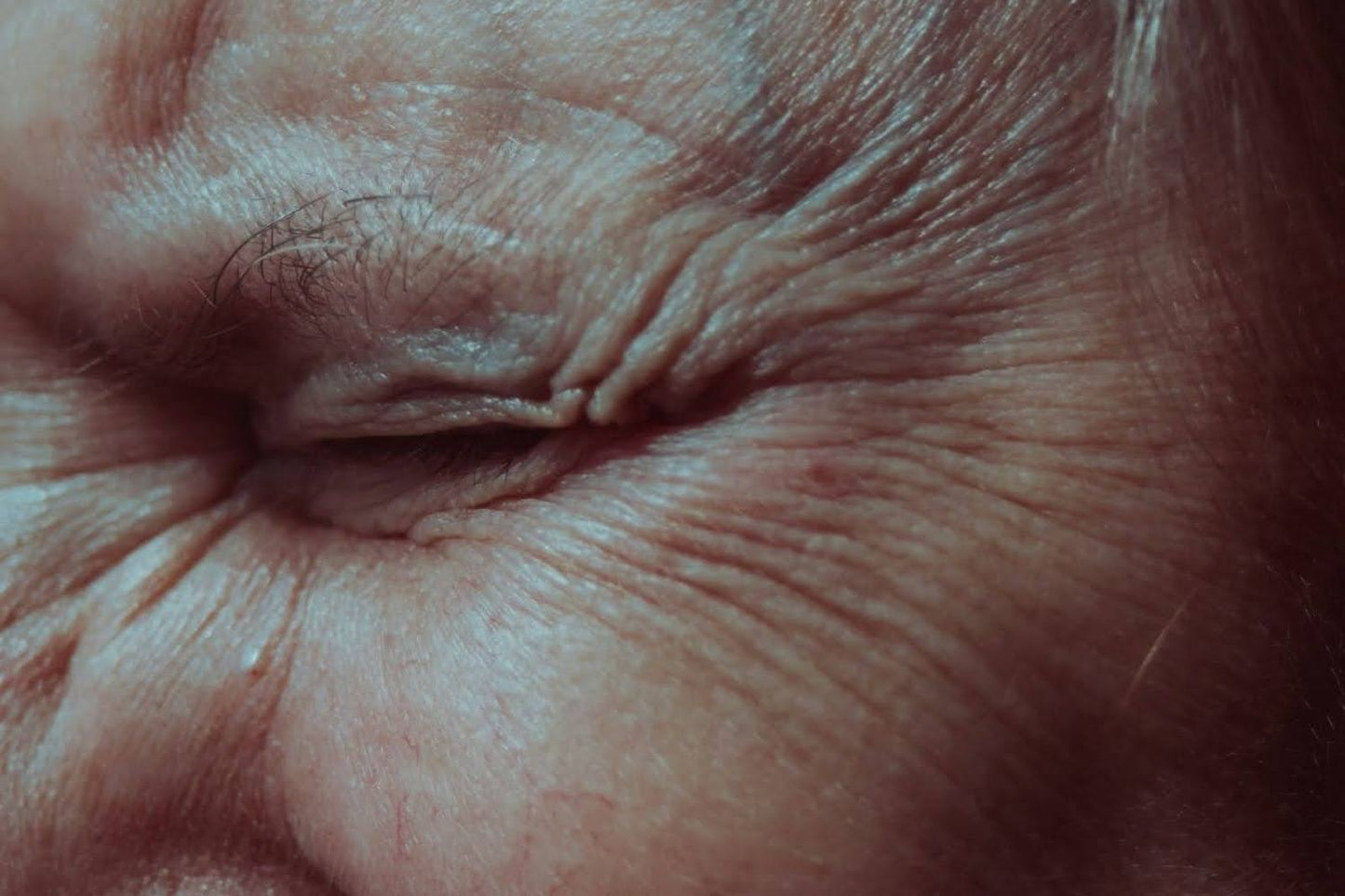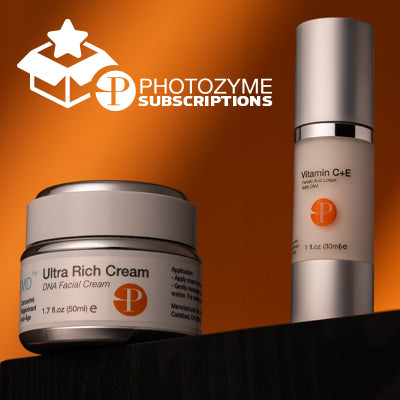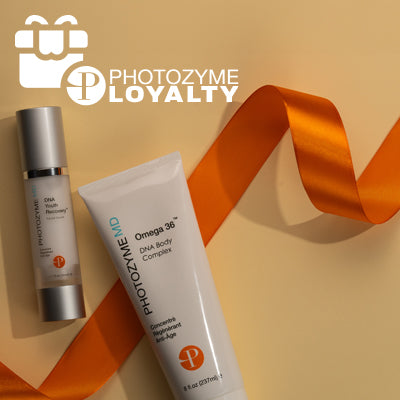
Key Takeaways:
- Consuming Alcohol May Accelerate Skin Aging: Alcohol accelerates skin aging by dehydrating the skin, reducing collagen production, and increasing oxidative stress.
- Frequent Consumption and Over-consumption Speeds Up the Damage: Chronic alcohol consumption depletes vital nutrients, exacerbates inflammatory responses, and diminishes skin elasticity.
- Decreasing Alcohol Isn’t Your Only Option to Reduce Aging: Adopting holistic skin care strategies, including hydration, nutrition, and professional treatments, can mitigate alcohol-induced skin damage and maintain skin health.
Achieving youthful, glowing skin is about more than just choosing the best skincare products. Everything from your diet to the amount of sun exposure you experience has an impact on your skin. Most of us know that drinking plenty of water, healthy foods, and protecting your skin with sunscreen can slow the signs of aging. However, one commonly overlooked habit that can cause premature skin aging is alcohol consumption.
As a specialty skincare company, Photozyme is dedicated to unveiling the intricacies of how lifestyle choices, like alcohol intake, correlate with skin aging. As skincare professionals, understanding the relationship between alcohol and skin aging is crucial in advising clients towards more informed lifestyle choices and effective skin care regimes.
In this article, we’ll explore the science behind how alcohol affects the skin, potentially accelerating the aging process. We'll explore the biochemical reactions alcohol triggers in the body, and its effects on skin appearance, and provide insights into mitigating these effects through innovative skincare solutions.
The Science Behind Alcohol And Skin Aging
Alcohol impacts skin health and aging through several biochemical pathways, primarily by its effect on the body's hydration levels, collagen production, and inflammatory responses.
Firstly, alcohol acts as a diuretic, increasing urine production and leading to dehydration. Dehydrated skin becomes dry and loses its elasticity, which can accelerate the appearance of fine lines and wrinkles. Studies have shown that alcohol impairs the skin's barrier function, further leading to moisture loss, which exacerbates these signs of aging.
Furthermore, alcohol consumption can lead to a reduction in vitamin A levels, a crucial nutrient for maintaining healthy skin. Vitamin A is essential for the regeneration of mucous membranes, which are vital for a healthy skin barrier, and also plays a critical role in the synthesis of collagen—an essential protein for skin elasticity and youthfulness.
Chronic alcohol intake is known to generate free radicals and oxidative stress, which are significant contributors to the aging process. This increase in oxidative stress damages cells, including skin cells, and disrupts normal cellular function. The cumulative effect results in noticeable signs of aging, such as uneven skin tone, dullness, and increased wrinkle formation.
On a systemic level, excessive alcohol consumption can exacerbate conditions that cause inflammation throughout the body and skin. Inflammatory cytokines can break down the collagen and elastin fibers, which are critical for maintaining the structural integrity and elasticity of the prior skin layers.
How Alcohol Affects Skin Elasticity
Alcohol's impact on skin elasticity is both profound and multifaceted. Generally, skin elasticity refers to the skin’s ability to stretch and then return to its original state. Essential to maintaining a youthful appearance, elasticity relies heavily on healthy collagen and elastin fibers, which are proteins responsible for the skin’s plump and firm qualities.
When alcohol is consumed, it sets off a chain of reactions in the body that adversely affects these critical proteins. Firstly, alcohol is a diuretic, which means that it encourages the body to expel water. This dehydration not only affects the skin by making it more prone to fine lines and wrinkles but also reduces the skin's overall suppleness. Prolonged dehydration can lead to decreased elasticity, making the skin appear loose and saggy.
Moreover, alcohol can induce a state of oxidative stress wherein there is an imbalance between antioxidants and free radicals in the body. Free radicals are unstable molecules that can damage various cellular structures, including collagen and elastin fibers. This oxidative damage accelerates the aging process, further deteriorating skin elasticity. Additionally, certain alcoholic beverages contain congeners and other impurities that can exacerbate inflammation and swelling in the skin, which also compromises its elasticity over time.
Understanding the relation between alcohol consumption and reduced skin elasticity highlights the importance of moderate alcohol intake as part of a lifestyle aimed at maintaining skin health and aesthetics.
The Impact Of Alcohol On Skin Moisture Content
Alcohol consumption has a pronounced drying effect on the skin, primarily due to its diuretic properties. When alcohol is consumed, it increases urine production, leading to a reduction in the body's hydration levels. This dehydration extends to the skin, the body’s largest organ, and can significantly compromise its moisture content.
Dehydrated skin becomes less efficient at performing essential functions, such as barrier protection and cellular turnover. The lack of adequate moisture in the skin can lead to increased roughness, flaking, fine lines, and overall dull appearance. These symptoms indicate an impaired skin barrier, which not only accelerates the aging process but also makes the skin more susceptible to environmental damage.
On a cellular level, alcohol disrupts the balance of nutrients and reduces the skin's ability to retain water. Glycerol, a natural component of skin that helps maintain its moisture barrier, is notably decreased in skin exposed to alcohol. This leads to a less resilient barrier, allowing moisture to escape more readily and environmental toxins to penetrate more deeply.
To combat this, aesthetic professionals may recommend products that contain hydrating and barrier-repair ingredients such as hyaluronic acid, ceramides, and fatty acids. These components can help restore skin moisture, reinforce barrier integrity, and reduce the visible signs of aging linked to dehydration. Additionally, professional advice might include strategies to enhance overall hydration levels, such as increasing water intake, using products designed to boost skin hydration, and reducing alcohol consumption.
Alcohol And Its Effect On Collangement On Collagen Production
Alcohol consumption has a significant impact on the body's ability to produce and maintain healthy collagen levels, which are crucial for the skin’s elasticity and youthful appearance. Collagen, a protein that makes up over 75% of the skin's structure, is vital for maintaining the skin's firmness and suppleness. When alcohol is consumed, it sets off a chain of events that can lead to diminished collagen production.
Firstly, alcohol is a diuretic, which means it promotes the production of urine, leading to increased water loss in the body. This dehydration not only affects the skin's moisture levels but also reduces the skin’s ability to retain elasticity. Dry, dehydrated skin is more prone to forming wrinkles and showing signs of aging prematurely.
Additionally, alcohol metabolism produces acetaldehyde, a toxic compound that can damage the body’s tissues. Acetaldehyde contributes to the degradation of collagen and elastin—two fibers that give skin its stretch and bounce. This process not only leads to sagging skin and wrinkles but also weakens the skin's natural repair mechanisms.
Moreover, excessive alcohol consumption can lead to nutritional deficiencies that are harmful to collagen production. Alcohol can impair the gut’s ability to absorb nutrients, leading to deficiencies in vitamins and minerals essential for collagen synthesis, such as vitamin C, zinc, and copper. Vitamin C, in particular, plays a critical role in collagen synthesis; insufficient levels can significantly impair the body's ability to repair and regenerate skin tissues.
How To Mitigate Skin Damage From Alcohol
In addressing skin damage due to alcohol consumption, adopting proactive skin care strategies can significantly counteract negative effects. Here are several effective steps to mitigate these impacts:
- Hydration: One of the simplest yet most effective ways to counteract the dehydrating effects of alcohol is by increasing water intake. Encouraging patients to drink at least eight glasses of water daily can help maintain the skin’s hydration levels.
- Balanced Diet: Nutrition plays a crucial role in skin health. A diet rich in antioxidants, vitamins, and minerals can help fight oxidative stress caused by alcohol. Foods such as berries, nuts, leafy greens, and fatty fish should be incorporated into the diet.
- Skincare Regimen: Implementing a tailored skincare regimen is vital. Products rich in antioxidants (like vitamins C and E), hyaluronic acid, and retinoids can promote skin renewal and combat the appearance of aging. Physicians can recommend specific Photozyme products that are formulated to rejuvenate and repair skin at a cellular level.
- Moderation: Advising patients on the importance of moderating alcohol intake can have substantial benefits. Limiting alcohol consumption can prevent the compounding effects of its metabolites on skin aging.
- Professional Treatments: There are various professional skin treatments that can reverse some of the damage caused by alcohol. Chemical peels, laser therapy, and microneedling are treatments that aesthetic professionals can provide to enhance skin rejuvenation focused on restoring skin texture and elasticity.
By integrating these strategies, individuals can see significant improvements in skin health and appearance, despite previous alcohol consumption. These insights not only lend to a better dermatological practice but also align with offering holistic and effective skincare solutions to patients.
Comparative Analysis: Alcohol-Induced Aging vs. Natural Aging
When discussing skin aging, it's essential to differentiate between the aging caused by alcohol consumption and natural aging processes. These two types of aging affect the skin differently, have varied symptoms, and benefit from distinct treatment approaches.
Mechanisms Of Aging
- Natural Aging: This is a biological inevitability that primarily depends on genetic factors and is characterized by the gradual reduction in collagen and elastin in the skin. As we age naturally, our skin loses its elasticity and firmness, leading to wrinkles and sagging.
- Alcohol-Induced Aging: Alcohol accelerates skin aging by impacting the body's vitamin A levels, which is crucial for cell regeneration and collagen production. Alcohol dehydrates the skin, exacerbates the appearance of lines and wrinkles, and can cause a dull, uneven skin tone due to its impact on circulation and hydration levels.
Visible Signs
- Natural Aging: Typically, naturally aged skin will show fine lines, wrinkles, and changes in texture primarily in the areas that are most exposed to the sun. Age spots and dryness are also common.
- Alcohol-Induced Aging: Skin aging from alcohol manifests more aggressively. It not only includes wrinkles and dryness but often leads to more pronounced vascular issues such as rosacea and an overall inflamed or blotchy appearance. Dark circles under the eyes are more pronounced due to the vasodilation effects of alcohol.
Speed of Progression
- Natural Aging: The progression of natural aging is relatively steady, with gradual changes occurring over the years.
- Alcohol-Induced Aging: Alcohol can dramatically accelerate the visible signs of aging. Individuals who consume excessive alcohol might notice premature aging, with rapid onset of skin issues compared to their naturally aging counterparts.
Reversibility
- Natural Aging: While the signs of natural aging are not entirely reversible, interventions such as Photozyme's innovative skincare products can significantly help in maintaining skin’s health and slowing the aging process.
- Alcohol-Induced Aging: The effects of alcohol on skin aging can be quite severe, but they are also more reversible compared to natural aging. Reducing alcohol consumption and incorporating intensive skincare treatments can quickly improve skin’s appearance and health.
Understanding the distinction between alcohol-induced aging and natural aging is crucial for developing targeted treatment plans. For individuals showing signs of alcohol-induced aging, a combination of lifestyle adjustments and advanced skincare solutions like those offered by Photozyme can provide a viable path to rejuvenating and maintaining healthy skin.
Final Thoughts
The relationship between alcohol and skin aging is evident, with numerous studies highlighting how excessive alcohol consumption can lead to accelerated skin aging. Alcohol dehydrates the skin, impairs barrier function, and increases inflammation, all of which contribute to the appearance of fine lines, wrinkles, and a lackluster complexion. Furthermore, alcohol can exacerbate conditions like rosacea and psoriasis, further compromising skin health.
At Photozyme, we are committed to advancing skin health through our innovative skincare solutions. Our products, designed with cutting-edge technology and high-quality standards, aim to counteract the effects of environmental stressors like alcohol. By integrating these scientifically formulated products into skincare routines, professionals can offer clients a comprehensive approach to maintaining youthful, healthy skin, ultimately enhancing both skin appearance and resilience.
Read also:
- DNA Repair Enzymes: What Are They and How Do They Help Your Skin
- The Ultimate Guide to Anti-Aging: Top Supplements For Youthful Vitality
- Unlock Youthful Glow with Skin Anti-Aging Strategies
Frequently Asked Questions On Alcohol And Skin Aging
Does alcohol consumption accelerate skin aging?
Yes, alcohol consumption can accelerate the process of skin aging. Alcohol is a diuretic, which means it leads to increased urine production and can cause dehydration. Dehydrated skin is more prone to fine lines, wrinkles, and sagging.
What are the signs of skin aging caused by alcohol?
Signs of skin aging caused by alcohol include dryness, dullness, increased wrinkles, loss of elasticity, and a sallow, less vibrant complexion. Additionally, alcohol can exacerbate the appearance of redness and puffiness, particularly around the eyes.
How does alcohol dehydrate the skin?
Alcohol increases the body's urine production which leads to a loss of fluids. Since the skin is the body’s largest organ, it is particularly vulnerable to the effects of dehydration. When the skin is dehydrated, it becomes dry, less plump, and less capable of combating environmental stresses, all of which contribute to premature aging.
Can alcohol cause wrinkles?
Yes, alcohol can contribute to the formation of wrinkles. Dehydration caused by alcohol consumption leads to reduced skin plumpness and elasticity, making it easier for wrinkles to form. Additionally, alcohol can alter blood circulation to the skin, further worsening its appearance and texture.
Is there a connection between alcohol and decreased collagen production?
Alcohol can negatively impact collagen production. Collagen is a protein that gives skin its strength and elasticity. Alcohol disrupts the balance of certain vitamins and nutrients essential for collagen production, such as vitamin A, which can result in a decrease in skin suppleness and the accelerated appearance of signs of aging.
How does alcohol affect skin elasticity?
Alcohol affects skin elasticity by impairing the synthesis of collagen and dehydrating the skin. Reduced collagen levels and dehydration make the skin less elastic, which contributes to sagging and the formation of fine lines and wrinkles.
What specific types of alcohol are most harmful to the skin?
All types of alcohol can affect the skin if consumed in excess, but some types pose greater risks. Darker spirits like whiskey, rum, and brandy contain congeners (impurities formed during fermentation) which can intensify the aging effects on the skin. Furthermore, sugary cocktails and mixers may exacerbate skin inflammation and contribute to the breakdown of collagen. Moderate consumption or opting for clear spirits with non-sugar mixers might lessen these effects slightly, though the best option for skin health is to limit alcohol intake overall.




